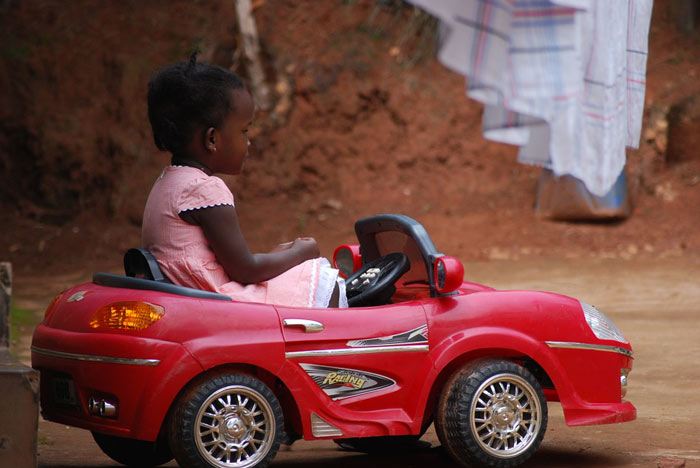How to React If Your Kid Gets Aggressive?
As children grow, they naturally get aggressive – now and again they hit out, kick, fight for toys, or yell as loud as their lungs allow. This is quite a normal stage of infantile development.
 Young kids have a lot to learn. They have to be able to handle most of the objects around them, some of them small and speak much more than they used to. No wonder, then, that they get tired or frustrated and give vent to their bad feelings.
Young kids have a lot to learn. They have to be able to handle most of the objects around them, some of them small and speak much more than they used to. No wonder, then, that they get tired or frustrated and give vent to their bad feelings.
What can we do to channel such reactions?
The main thing is not to respond by becoming aggressive too. If you start shouting at the child, abusing him or even hitting or throwing something, it is not going to make him desist – on the contrary, the child can grow angrier still and ensure that it is quite right to act in this fashion. Children should perceive that adults can control themselves and that with perseverance they will also be able to gain control over their tempers.
Now that is easier said than done, and in order to control your fury properly, you should pinpoint what exactly it is that makes you angry. Probably it is the fact that your kid won’t listen to what you tell him, and you get irritated by the show of disobedience. Actually, children are apt to resist authority from time to time – they try to feel independent and hold their own, or they can be wanting to do things that are more interesting for them. Therefore get ready for the next time and prepare to make a pause and remind yourself that you two are not warring and you don’t need to anger yourself. If you can’t cool down, pace around the place until you feel you’ve got yourself well in hand.
The aim of that is for your kid to learn to recognize their feelings and understand that anger must be handled. His negative feelings – anger, frustration, disappointment – must be expressed in a socially admissible fashion. How can parents work on that?
Respond at once
If your kid set upon his sibling and hits out, meaning to go on hitting, interfere at once. The kid ought to understand straightaway that what is happening is not right. Stop the scuffle and order a time-out. But the excited kid may refuse to adjourn to his room, and a new battle might soon break out. To avoid it, you can opt for a time-in. Pause all activities, sit down and let the child sit with you and keep silent. If he has no objections, touch or fondle the child so he will feel your love. After you have sat like this for a while, talk over the conflict and return to what you were doing.
Once you have calmed down, have a talk-over
You need to discuss the occurrence; do it as soon as your kid returned to normal – don’t let him forget what happened, so it should be within 2-3 hours after the outbreak. Speaking quietly, outline the situation that caused him to react aggressively. Let the kid explain what angered him. Then tell him that it’s all right to become angry, but it doesn’t mean that it can lead to fights, biting or attacking. There are more human ways of expressing feelings, like verbalizing anger by saying out loud that you got angry because the other kid meddled with your toys. Then, one can just walk away and think quietly about how to react.
Be consistent in your disciplinary measures
Every aggressive outbreak should be responded to in about the same fashion so that after some time your consistency will set a familiar pattern (“So you are biting again, you deserve a time-out, you know”). It will turn into a habitual disciplinary measure and the child will be anticipating the punishment for his wrongdoing – which will help him towards controlling his aggression.
Help develop self-control
Watch your child see when he has begun to exercise self-control and acts properly, asking for things he wants instead of trying to grab them. Tell him that the ability to control himself and avoid conflicts is what he needs to be an agreeable person whom people will like. If you see that it is not easy for him to hold himself in check, consider rewards that he will get by not acting aggressively. You will spend quality time with him treating him to things he is fond of or going to places where he likes playing.
Let him feel responsible
Should your kid cause damage to other people’s things, he ought to know that he will have to pay for the damage, dipping into his pocket money or earning it by working about the house. Explain to the guilty kid that it is not a kind of punishment but a natural retaliation for an aggressive act that goes for children and adults alike. Everyone who damages property must recompense for the harm.
Explain the moral grounds of behaving non-aggressively
Point out to the kid that physical attacks are hurtful for others. Define principles to show that decent people always think about how their actions can affect the people they are addressed to or those around them. So we all are meant to be ethic and empathic to others.



